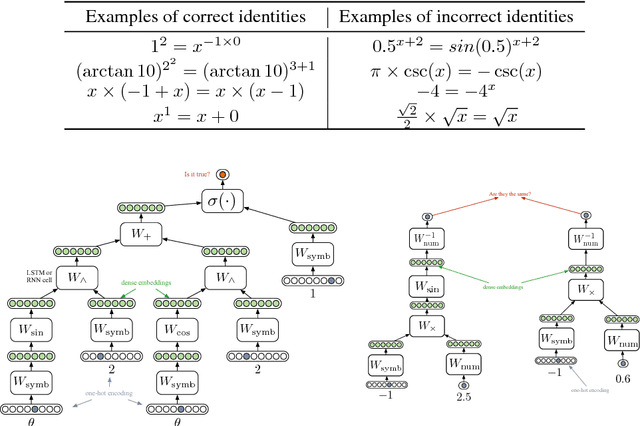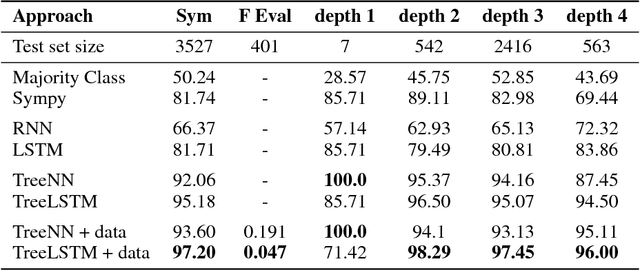Combining Symbolic Expressions and Black-box Function Evaluations in Neural Programs
Paper and Code
Apr 26, 2018



Neural programming involves training neural networks to learn programs, mathematics, or logic from data. Previous works have failed to achieve good generalization performance, especially on problems and programs with high complexity or on large domains. This is because they mostly rely either on black-box function evaluations that do not capture the structure of the program, or on detailed execution traces that are expensive to obtain, and hence the training data has poor coverage of the domain under consideration. We present a novel framework that utilizes black-box function evaluations, in conjunction with symbolic expressions that define relationships between the given functions. We employ tree LSTMs to incorporate the structure of the symbolic expression trees. We use tree encoding for numbers present in function evaluation data, based on their decimal representation. We present an evaluation benchmark for this task to demonstrate our proposed model combines symbolic reasoning and function evaluation in a fruitful manner, obtaining high accuracies in our experiments. Our framework generalizes significantly better to expressions of higher depth and is able to fill partial equations with valid completions.
 Add to Chrome
Add to Chrome Add to Firefox
Add to Firefox Add to Edge
Add to Edge